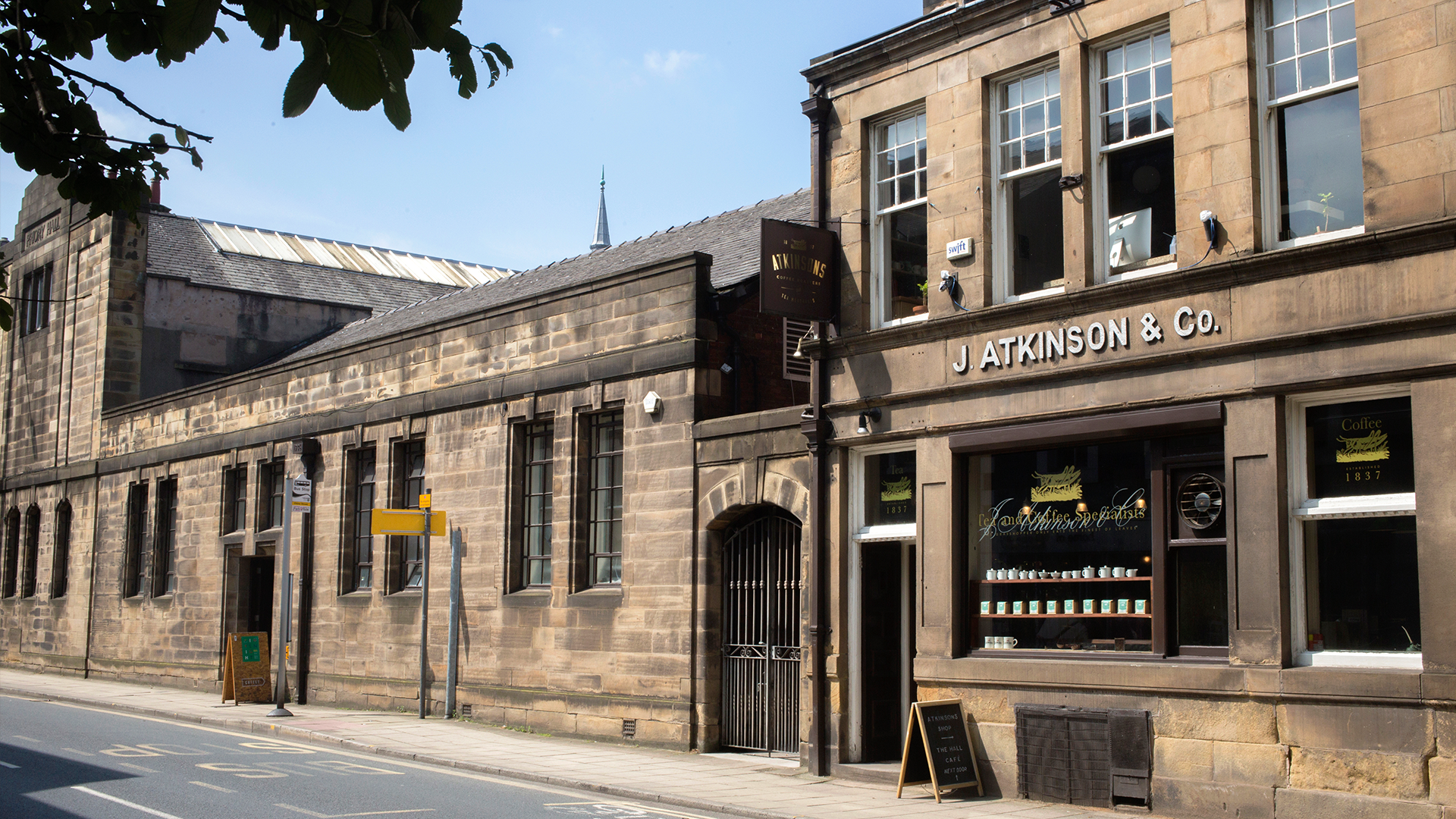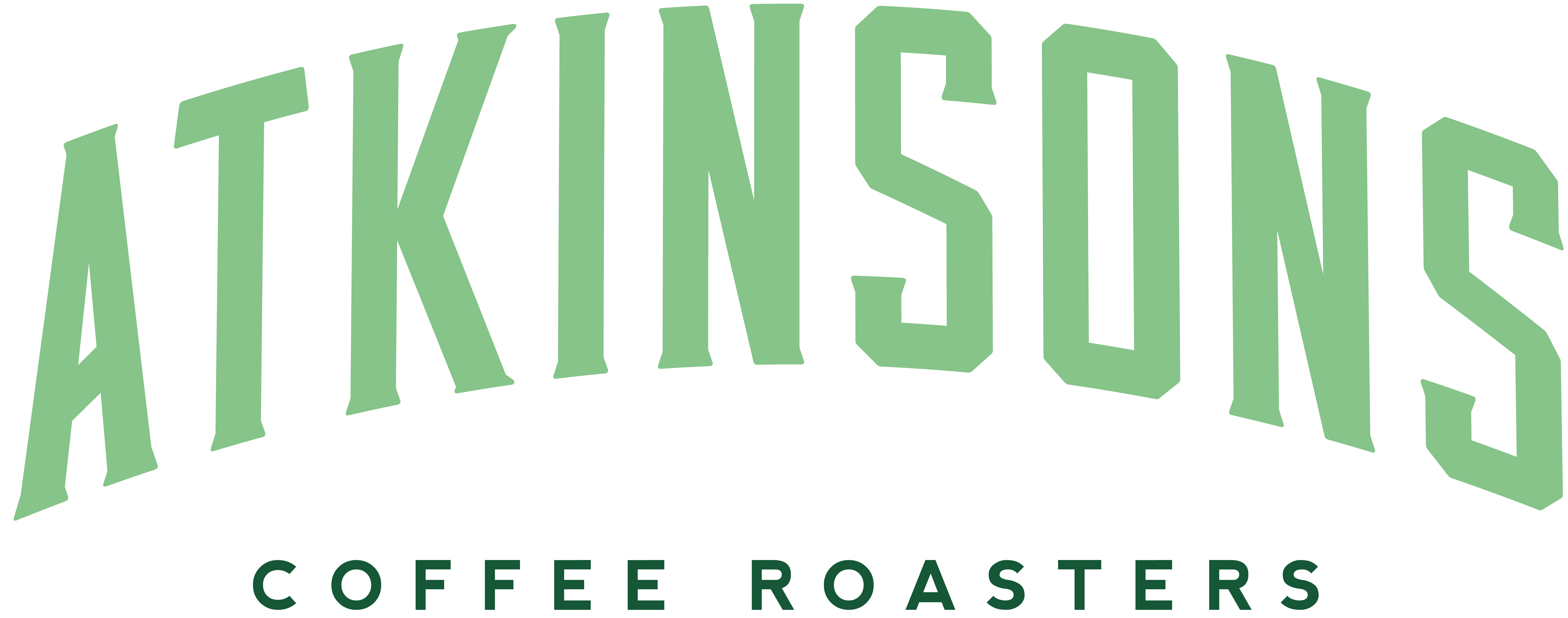

Atkinsons Coffee Roasters

Lancashire, United Kingdom
December 2023
Beverages
Manufacturing
United Kingdom
Coffee Roasters and Tea Merchants Established in 1837 Re-booted in 2005 by the current owners the Steel family, to combine Heritage with Innovation and introduce Traceabilty and Transparency to inspire Trust. Family owned but much loved by the local community who are proud of the success of their oldest surviving retailer and actively participate in all their sustainable intiatives. They have built up a network of global connections all over the coffee world and have visited and forged relationships with the bulk of producers on their extensive but well-curated list. Quality always comes first, through rigourous sampling. The original shop is an authentic Victorian emporium and a retail destination, attracting visitors to Lancaster from far and wide. They have three Cafés in iconic buildings, where they champion the cause of 'Speciality' coffee: The Music Room - a 1730's Rococo Pavilion, The Hall - an Art Deco Parish Hall and The Castle, in Lancaster Castle - spanning a thousand years of history. They also have a State-of-the-Art Roastery in an award-winning 'invisible' building, from whence they conduct their Wholesale operations, servicing over 150 customers in the hospitality sector, as well as their retail website online business servicing th
Overall B Impact Score
Governance 19.2
Governance evaluates a company's overall mission, engagement around its social/environmental impact, ethics, and transparency. This section also evaluates the ability of a company to protect their mission and formally consider stakeholders in decision making through their corporate structure (e.g. benefit corporation) or corporate governing documents.
What is this? A company with an Impact Business Model is intentionally designed to create a specific positive outcome for one of its stakeholders - such as workers, community, environment, or customers.
Workers 14.4
Workers evaluates a company’s contributions to its employees’ financial security, health & safety, wellness, career development, and engagement & satisfaction. In addition, this section recognizes business models designed to benefit workers, such as companies that are at least 40% owned by non-executive employees and those that have workforce development programs to support individuals with barriers to employment.
Community 18.4
Community evaluates a company’s engagement with and impact on the communities in which it operates, hires from, and sources from. Topics include diversity, equity & inclusion, economic impact, civic engagement, charitable giving, and supply chain management. In addition, this section recognizes business models that are designed to address specific community-oriented problems, such as poverty alleviation through fair trade sourcing or distribution via microenterprises, producer cooperative models, locally focused economic development, and formal charitable giving commitments.
Environment 24.2
Environment evaluates a company’s overall environmental management practices as well as its impact on the air, climate, water, land, and biodiversity. This includes the direct impact of a company’s operations and, when applicable its supply chain and distribution channels. This section also recognizes companies with environmentally innovative production processes and those that sell products or services that have a positive environmental impact. Some examples might include products and services that create renewable energy, reduce consumption or waste, conserve land or wildlife, provide less toxic alternatives to the market, or educate people about environmental problems.
Customers 3.8
Customers evaluates a company’s stewardship of its customers through the quality of its products and services, ethical marketing, data privacy and security, and feedback channels. In addition, this section recognizes products or services that are designed to address a particular social problem for or through its customers, such as health or educational products, arts & media products, serving underserved customers/clients, and services that improve the social impact of other businesses or organizations.